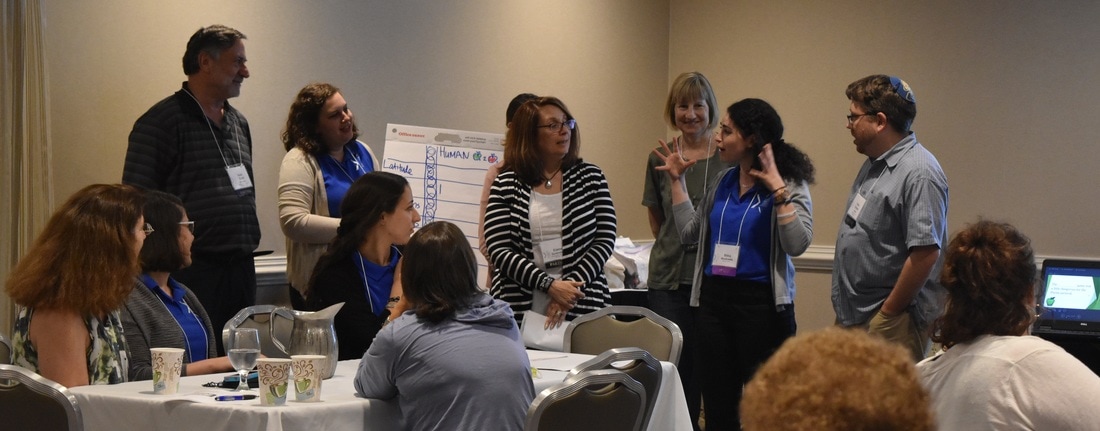Return to Education Newsletter main page! |
Relational Judaism: Helping Jews Relate To Each OtherBy Leah Wittenberg, Lawrence Magdovitz ISJL Education Fellow
Back in 2011, the keynote speaker at the education conference was Dr. Ron Wolfson. Dr. Wolfson wrote a book called Relational Judaism. In this book, he explains the idea of transforming the outdated model of Jewish institutions into something that better fits the Jewish community in the modern world. Dr. Wolfson maintains that it is more about the people we are engaging than the programs we are running. This statement can be difficult to hear, especially when we put so much time and effort into the programs we run in our communities. Don’t be alarmed! Dr. Wolfson means that what is important in Jewish communities today is building deep relationships, as opposed to getting people to come to the building for a program which may not interest them. Recently, Jewish educators have been very invested in the idea of “programming to engage Jews,” but Dr. Wolfson insists that we invert this notion. Instead, he suggests that we think of the actual people first, in an attempt to create relationships between Jews, and then create programs that can foster these relationships (He’s not saying get rid of programs completely!). One of the great traditions of the ISJL’s annual education conference is having some “scheduled downtime” at night. This event has ranged from a rousing and hilarious game of Human Apples-to-Apples to Jewish Trivia led by other impressive ISJL education departments, to simply convening for a drink with new friends in the hotel lobby. These activities are low stakes, fun for everyone, and perfect examples of Dr. Wolfson’s theory of relational Judaism in action. And, while they may not be overtly Jewish, there are two significant Jewish values that come across in these programs: אוֹהֵב זֶה אֶת זֶה (oheiv zeh et zeh, loving one another) and כָּל יִשְֹרָאֵל עָרֵבִים זֶה לָזֶה (kol yis’ra-eil areivim zeh lazeh, all Jews are responsible for one another). When we make sure that we put relationships first, we can fulfill these important Jewish values. The annual education conference provides a time for all of our partner communities to come together and learn from professional speakers and each other. Dr. Wolfson might argue that we may learn even more through our informal conversations with one another than in the scheduled programs throughout the day. Regardless of how or when we learn, we will surely all glean different lessons throughout our time spent during the conference. This year, try to be more aware of the relationships that you are forming with the people you meet, and the old connections that you rekindle. And maybe you will even find that some of the most illuminating moments at the conference happen outside of the scheduled programs. |
- Home
- WHO WE ARE
-
WHAT WE DO
- PODCAST
- Conference >
- Education >
-
CULTURE
>
- Culture Overview
- Cultural Programming >
-
History
>
-
Encyclopedia of Southern Jewish Communities
>
- Alabama Encyclopedia
- Arkansas Encyclopedia
- Georgia Encyclopedia
- Florida Encyclopedia
- Kentucky Encyclopedia
- Louisiana Encyclopedia
- Mississippi Encyclopedia
- North Carolina Encyclopedia
- Oklahoma Encyclopedia
- South Carolina Encyclopedia
- Tennessee Encyclopedia
- Texas Encyclopedia
- Virginia Encyclopedia
- Encyclopedia Credits
- Oral History
-
Encyclopedia of Southern Jewish Communities
>
- SPIRITUALITY >
- DONATE
- Shalom Y'all
- Strategic Plan
- Southern & Jewish Blog
- Calendar
- Virtual Press Kit
|
©2024 Goldring/Woldenberg Institute of Southern Jewish Life
|

